- Home
- Patrick Robinson
Intercept Page 41
Intercept Read online
Page 41
“Just counting on a couple of little sonsabitch murderers coming home to Mommy,” replied Mack, inelegantly.
IBRAHIM AND YOUSAF bought a two-day-old copy of USA Today on the airport at Lahore, and there, on page seven, they found a short news item under the headline: MOUNTIES CONFUSED
OVER VANISHING MAINE
MURDER SUSPECTS
Halifax. Thursday. The Royal Canadian Mounted Police have called off their manhunt in Nova Scotia for two men wanted for the murder of Bangor bank manager, Jed Ridley, more than a week ago.
The two suspects, both believed to be from the Middle East, apparently took the ferry from Bar Harbor, where Mr. Ridley’s body was found, hidden in his own car, which had been driven into deep woodland.
For several days, Canadian investigators were certain the two men were somewhere in Nova Scotia, while they attempted to gain passage on a ship leaving the country. A spokesman said last night they now consider the men had left the peninsula even before the search began. Associated Press.
Ibrahim found something immensely satisfying in that news item. He had pitted his wits twice against the Great Satan. The first time he had lost, but the second time he had won. There was something exhilarating about that, and he happily regaled Kaiser Rashid with the story of their adventure all the way up to Peshawar in the government private jet.
Kaiser himself was deeply impressed by the care and efficiency with which Ibrahim had prepared the mission. And he did not believe the leak, which had obviously alerted the Americans to the forthcoming attack, was anything to do with the operational team that Ibrahim had led.
Shakir Khan’s assistant was another al-Qaeda disciple being groomed for the highest rank. His first-class law degree from King’s College, London, set him apart from most other members of this fanatical underground brotherhood. Kaiser’s intellect made him invaluable to Khan. But the fire of the revolutionary zealot burned within him, and Kaiser’s instincts were trusted by men in the highest places.
Right now his instincts were telling him someone had hacked into their carefully planned communications; twice, so far as he could tell. Once between Peshawar and Sheikh Abdullah in Bradford, England. And again between Pakistan and New York.
His reasons were cold and legal: three of our men on Ilkley Moor died because someone knew they were coming, and someone knew why they were there. The New York intercept was the same. Someone knew about Mountainside Farm, otherwise they could not possibly have blown our bus before we could blow the school. We never communicated directly with Connecticut, only New York.
What concerned Kaiser was the possibility of a straight leak, a spy, or a mole. “It’s one thing to be intercepted by a national military surveillance,” he told Ibrahim. “That’s just bad luck. But it’s another to have a spy operating among us. That’s far too dangerous.”
He had nothing but admiration for Ibrahim, his intelligence, his courage, and his daring, and deep down Kaiser felt that somehow the organization had let Ibrahim down. He was sympathetic when both of these al-Qaeda field operators told him that they wanted to go home to their families, up in the mountains. They’d both been away for many years. And such had been the intensity of the training in the camps up in the Swat Valley, there had been no time to go home, not even for a day.
Al-Qaeda was determined to recover from the Canaan setback and move fast on another mission that would rival 9/11 in U.S. devastation. In Kaiser’s view, the experience of Ibrahim and Yousaf was priceless, and he would insist they were a part of it.
However, if they were not allowed home, their hearts may not be in it. It was critical to any future mission that Ibrahim and Yousaf be contented warriors. They needed to be taken home for a couple of weeks’ recuperation.
Kaiser reasoned they had both been through hell, and Allah had smiled upon them both by bringing them safely home against near-impossible odds. Re-uniting them with their families was, in Kaiser’s opinion, the will of Allah.
As soon as their aircraft landed, all three men—Kaiser, Ibrahim, and Yousaf—attended a formal debriefing in the big house behind the Andar Shehr in Peshawar. Aside from Khan and Kaiser, there were three other al-Qaeda men in attendance, all of whom would accompany Ibrahim and Yousaf home.
There were the two brothers, Ahmed and Gholam Azzan, Pakistanis by birth, forward commanders and assault instructors in al-Qaeda. Ahmed was thity-eight years old, the senior by two years. He had served bin Laden faithfully through all the years of jihad, and intended to continue doing so, whether or not The Sheikh had died in the U.S. onslaught in Tora Bora.
The Azzans had both been born in the Swat Valley in the river town of Madyan, as had Shakir Khan himself. The third man in attendance was Captain Musa Amin, a one-time commander of the most successful small Taliban army in the Hindu Kush. Two hundred strong, they had harassed and killed any U.S. military personnel with whom they came in striking range.
The Americans, however, had, in the end, very nearly wiped out this entire force in a lethal ambush, and Amin at the age of forty, had been forced to flee. Badly wounded, he had reached one of the al-Qaeda training camps and slowly risen back to his former prestigious position, chief instructor and forward commander.
There was no finer mountain warrior than Captain Musa Amin, no more skilled tracker, no better gunner. And he was desperately protective of his nephew, Ibrahim Sharif.
Shakir Khan took it upon himself to bring al-Qaeda’s new favorite sons home. Their objective was a tiny village called Kushram. It was situated below one of the high plateaux, around seven miles from the village of Sabray, which was built on similar lines, set into the steep mountain. Indeed, Sabray shared the same village elder, a hickory-tough old gentleman of seventy-eight summers, upon whose word rough Taliban terrorists trembled.
With only two ovens in the entire village, Kushram might not have been everyone’s ideal. But it was home to Ibrahim, and in a way, to Captain Amin, the brother of Ibrahim’s mom. It was also home to Yousaf, whose own parents had died, and who had no other roots except the immediate family of his oldest friend.
Shakir Khan listened very gravely to Kaiser Rashid’s suspicions about the leaks, and he declared he would launch a private investigation. However, he understood the most pressing issue was to get Ibrahim and Yousaf home, and he outlined his plans.
There would be five of them altogether, including the Azzan brothers and Captain Amin. They would travel by road from Peshawar, 140 miles up the winding, mountainous Highway 45 to Chitral airport. From there, Khan would organize a Pakistani Air Force helicopter to take the five men seventy-five miles into the Hindu Kush, landing them on the high plateau above the village of Kushram. From there they could walk the mile down to the houses.
The incredibly blurred line between official government troops and armed al-Qaeda loyalists was never more vividly illustrated. The sheer number of disloyal regular officers and men in Pakistan’s armed forces was bringing the nation to the brink of civil war.
The officers were devoutly loyal to the Taliban and to al-Qaeda, and they wanted the government overthrown and the Islamic extremists in power. And they were happy to organize brutal and murderous attacks on their own commanding officers and colleagues in order to achieve their aims.
When a man like Shakir Khan gave an order, it was carried out, because Khan was a known and celebrated Muslim extremist, and he knew to whom he should issue that order. Nonetheless, he still worked for the ruling government. Could there ever have been a more treacherous set of circumstances prevailing in any nation on earth? Especially in a country with a nuclear capability, as Pakistan had. The truth was, particularly up here on the North Western Frontier, no one knew whose side sections of the army were on.
However, it was all pretty good for the homecoming kings. They would leave at first light, and, of course, on such a journey in this part of the country, they would all need to be well armed. When the black government limousine arrived for the drive to Chitral, it would be loaded wit
h five AK-47s and ammunition belts, plus a box of four hand grenades. The connecting Air Force helicopter, a Russian-built Mi-17 transporter, with its distinctive portside tail rotor, would bring them, in addition, four rocket-propelled grenades.
Neither the roads nor the airways were any place to travel in Pakistan these days; not without being armed to the teeth. And the ever-present danger, even for Air Force helicopters flying very high over the Hindu Kush, was the possibility of being hit with a missile fired by the Taliban.
Shakir Khan wished them all well before retiring to bed; he was not yet awake when they left for Chitral at six o’clock the following morning. Neither for that matter, was Kaiser Rashid.
It took them four hours to make the small airfield at Chitral, and the helicopter was waiting. They gathered up their weapons and ammunition and climbed aboard. There was a three-man crew, including the navigator, and his job was critical, for there are no roads or railways to guide a pilot up here; just deep valleys and towering peaks, up to twenty thousand feet. As a point of contrast, these peaks were more than ten times the height of Haystack Mountain.
The GPS numbers were vital because it was difficult to take a mark on the steep escarpments down below. It was essential to have a fast, armor-plated Kevlar aircraft to fly across this border, which is why Shakir Khan had chosen this Russian warhorse.
They lifted off the runway with the sun at their backs, silhouetting them to any enemy operating out to the west of them. But the pilot was highly trained, and he immediately climbed ten thousand feet, then fifteen thousand. They could still get hit, but the height and speed of the aircraft made it increasingly difficult. The Taliban rocket men could be somewhat efficient at low level, but they were not that good.
The journey took only a half hour, flying at 140 knots all the way, up near its service ceiling of twenty thousand feet. The pilot came down on GPS numbers, although Ibrahim and Yousaf could see the village clinging to the mountainside below the plateau.
They were asked to disembark as quickly as possible, carrying their weapons and bags. All five of them stood in the high pastures, a couple of hundred yards from a sizeable herd of goats, and they watched the helicopter take off straight up into the cloudless sky, before clattering away, back east to Pakistan.
The al-Qaeda men slung their ammunition belts diagonally across their chests, pulled their rifles onto their shoulders, and they headed down the steep grass slopes, straight toward Kushram’s main street, straight toward the home of Ibrahim’s parents, third house on the left.
BACK AT THE BAGRAM BASE, Mack Bedford was preparing. He had made a rough estimation of the ETA of the terrorist’s flight from Europe, and another guesstimate of the time it would take them to reach Peshawar, where the first intercepted phone call had been made.
By now he was sure, that if he were correct, and they were indeed coming home, they would be there by now. In strictest confidence he had asked an old buddy, now working right here in INTEL, to stay alert for a new cell phone, probably belonging to the guy who had tried to blow the Connecticut school.
This was all routine for these INTEL guys. They had spies and moles everywhere, which was how the SEALs had long been so brilliantly successful at locating the worst terrorists and getting them sent to Guantanamo Bay. He checked every couple of hours for some indication that Ibrahim and Yousaf had arrived at last in Kushram.
Right here, Mack was dealing with déjà vu all over again, to quote the immortal Yogi. Six years ago, he’d gone through this very process, checking it out over and over, trying to get the go-ahead to take his SEAL Team 10 guys and nail these mountain bastards who’d killed fifteen marines and two of his SEAL brothers on the outskirts of Kabul.
And they’d achieved their objectives. And here he was again. Same mountains, same bastards, same mission. Except that this time he would be alone, and the unspoken fear that dwelt within him was that this Ibrahim fuckhead would recognize him.
Six years ago, they had stared into each other’s eyes. There had been pure hatred between them. Ibrahim had spat at him. In turn Mack had grabbed him by the balls and half-drowned him in the rain barrel.
If he screwed this up to even the slightest degree, he would be shown no mercy. He would be tortured, and then they would empty their rifles into his face so that no one would ever recognize him, even in death.
For a normal human being, such a possibility would be frightening beyond endurance. But for Mack Bedford it produced only a rising of what he called the “Hours of the Wolf,” a phrase he had borrowed from the Swedish film director, Ingemar Whatsisname. It was a phrase that, for him, described a personal feeling of such surging fury, such a blinding red mist of anger, there was no going back.
He had not felt it once since that day at the bridge on the Euphrates when he’d shot down the twelve Iraqi terrorists who’d just wiped out half of his platoon.
But he felt it now, just at the memory of that day in Kushram when Ibrahim had spat in his face. He remembered, too, the pure hatred on the face of the Afghani, as SEAL Team 10 had arrested him. And he remembered also the intentions of these people toward the innocents of Canaan Academy.
The Hours of the Wolf were welling up inside him, but he fought down that old feeling of uncontrolled anger. Because that rising fury always signaled the moment when Mack felt he was indestructible, with the strength of ten men.
And that could lead to recklessness in the face of the enemy. And the former SEAL commander had a lot of reasons to avoid that, at all times.
THE FIVE HEAVILY ARMED al-Qaeda field commanders walked down the hill in a kind of military formation—Ibrahim and Yousaf together in the lead, the Azzan brothers and Captain Amin right behind them in a line of three.
All five wore Afghan tribal dress, the shalwar kameez, the traditional tunic and baggy white trousers, the long dupatta scarf, and the small pakol hat. Between them the Azzans carried the box of RPGs.
By now the villagers had spotted them and had swarmed to the top of the one narrow through-street, which snaked down their mountain. Ibrahim and Yousaf led the homecoming. Everyone began to clap, and the children jumped up and down and yelled, “Welcome Home!” as they had been instructed.
Ibrahim’s father ran forward to greet the son he had believed he would never see again. Because news of the catastrophe in Connecticut had by now traveled far, all the way to the high peaks from the seething bazaars of Peshawar’s old city.
There was no resident of the Hindu Kush tribal lands who was unaware that ten al-Qaeda martyrs had perished in a distant land serving the cause of Allah. Everyone in Kushram had thought Ibrahim and Yousaf had died with the others.
Ibrahim’s father, his arms around both his son and Yousaf, wept with joy. The other three al-Qaeda warriors were swept up by the throng and half-carried into the main street, where the village arrived with green tea and the once-a-month luxury of sweet pastries, baked today, especially for this occasion. Everyone, it seemed, knew they were coming, despite the total absence of telephones, television, radio, or even electricity.
It took two hours for the excitement to die down and for the women to return to the two ovens in the village to begin preparations for the evening feast, which the elders had sanctioned. It took a tribal caucus for permission to slaughter three goats, because it was the milk from these farm herds that kept everyone alive throughout the year.
The feast would begin in the afternoon because when darkness fell up here, the mountain went pitch black, and everyone was compelled to retire to bed.
Meanwhile there was astonishing activity at Ibrahim’s home, where he had not set foot for six years, not since Mack Bedford had manhandled him across the threshold, kicking Yousaf hard in the ass for good measure.
No member of the family had ever forgotten the humiliation of that day. Ibrahim’s defiance and bravery, the terrible insult to Yousaf, the lady next door inconsolable after a SEAL had broken her son’s jaw for spitting at him. It was said that Ibrahim’s father h
ad never spoken a word while his son was a prisoner of the Americans.
Today was a day not just of joy, but of remembrance for the lost heroes on the Connecticut school bus. Of celebration for the return of the village sons. The accompanying senior al-Qaeda commanders represented a confirmation of the high regard in which Ibrahim and Yousaf were held, probably even by bin Laden himself.
Way up here, ten thousand feet above sea level, and yet another ten thousand feet below the mountain peak, there was much for which to be thankful as the warriors mingled with the elders and the goat-herders, selecting sites for the armed sentries tonight.
Wherever al-Qaeda and their Taliban comrades were gathered together, it became an automatic military garrison. The mountains were silent, but that did not lessen the dangers to these renegade illegal combatants, implacably waging war against the Pakistani Army, the Afghan Government’s Army, and the United States. They could never drop their guard.
EVERY DAY AT BAGRAM, busloads of Afghan workers poured into the American base. In addition to all the electronic surveillance being conducted here, it was from these gangs of laborers, carpenters, builders, painters, and concrete mixers that critical information was often gathered.
The entire Afghani workforce was seeded with U.S. INTEL, listening for the whispered word, the off-guard moment, the accidental betrayal. Waiting for the Afghani who had something to sell.
Unsurprisingly, it took about ten minutes that morning for rumor to sweep through Bagram that two known al-Qaeda terrorists had arrived back in their village from the United States.
Mackenzie Bedford was ready to act. He went immediately to the CO and announced he was going in tonight. He needed to get kitted out, and required a ride in a helo for the insert. He wanted to land around four miles north of his target zone, and then walk in through the pitch dark of the mountain, with his map, compass, GPS, and night glasses.

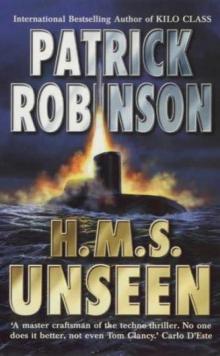 H.M.S. Unseen am-3
H.M.S. Unseen am-3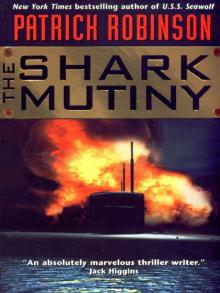 The Shark Mutiny (2001)
The Shark Mutiny (2001)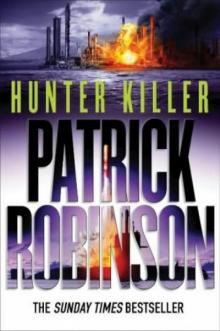 Hunter Killer am-8
Hunter Killer am-8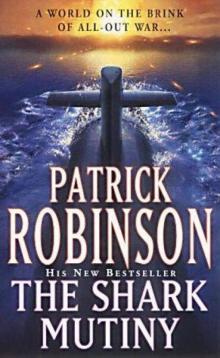 The Shark Mutiny am-5
The Shark Mutiny am-5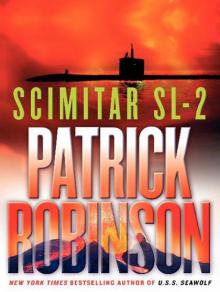 Scimitar SL-2
Scimitar SL-2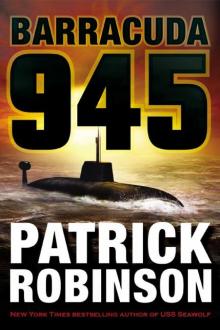 Barracuda 945 am-6
Barracuda 945 am-6 Hunter Killer
Hunter Killer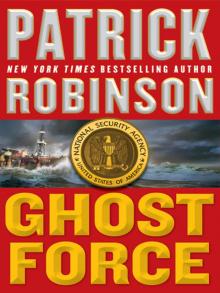 Ghost Force
Ghost Force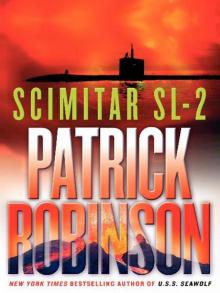 Scimitar SL-2 (2004)
Scimitar SL-2 (2004)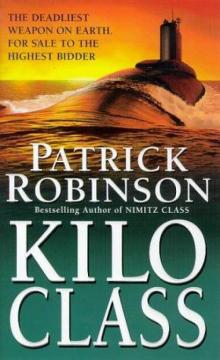 Kilo Class am-2
Kilo Class am-2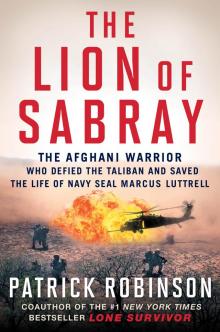 The Lion of Sabray
The Lion of Sabray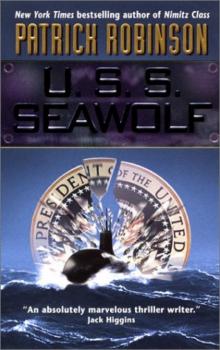 U.S.S. Seawolf am-4
U.S.S. Seawolf am-4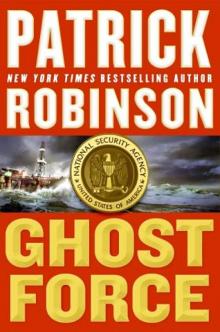 Ghost Force am-9
Ghost Force am-9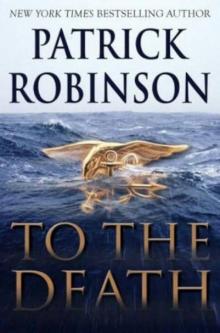 To the Death am-10
To the Death am-10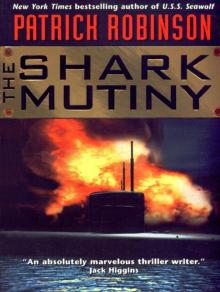 The Shark Mutiny
The Shark Mutiny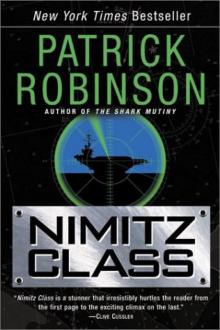 Nimitz Class am-1
Nimitz Class am-1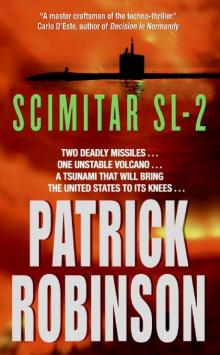 Scimitar SL-2 am-7
Scimitar SL-2 am-7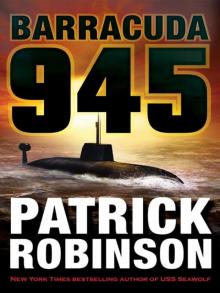 Barracuda 945
Barracuda 945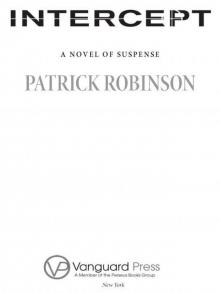 Intercept
Intercept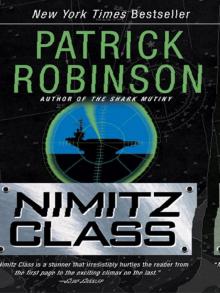 Nimitz Class (1997)
Nimitz Class (1997)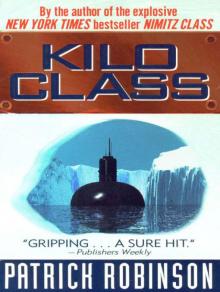 Kilo Class
Kilo Class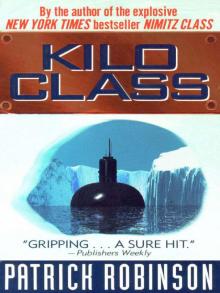 Kilo Class (1998)
Kilo Class (1998) Diamondhead
Diamondhead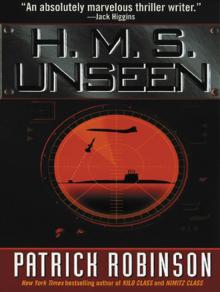 H.M.S. Unseen
H.M.S. Unseen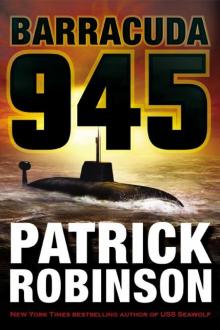 Barracuda 945 (2003)
Barracuda 945 (2003)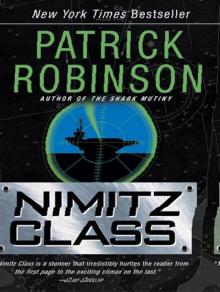 Nimitz Class
Nimitz Class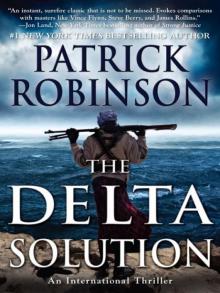 The Delta Solution
The Delta Solution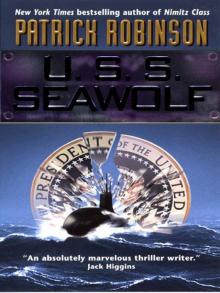 U.S.S. Seawolf
U.S.S. Seawolf